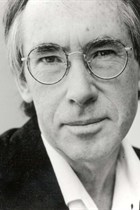 It’s Ian McEwan’s own fault that you expect so much from his new novel, The Children Act. His books are always enjoyable, some, like The Child in Time and Amsterdam, have gone on to win prestigious awards. Others like Atonement have been adapted into successful movies able to attract stellar casts. He never shies away from the controversial and then goes about dissecting the subject with a brisk deftness.
It’s Ian McEwan’s own fault that you expect so much from his new novel, The Children Act. His books are always enjoyable, some, like The Child in Time and Amsterdam, have gone on to win prestigious awards. Others like Atonement have been adapted into successful movies able to attract stellar casts. He never shies away from the controversial and then goes about dissecting the subject with a brisk deftness.
The Children Act (the title comes from the legislation which governs the treatment of juveniles in the British judiciary system), is a subject ripe for his skilled touch. It centers on Fiona Maye, a successful High Court judge who is hearing an urgent case involving Adam, a 17-year old boy Jehovah’s Witness who, for religious reasons, is refusing medical treatment that could save his life, a decision that is supported by his
